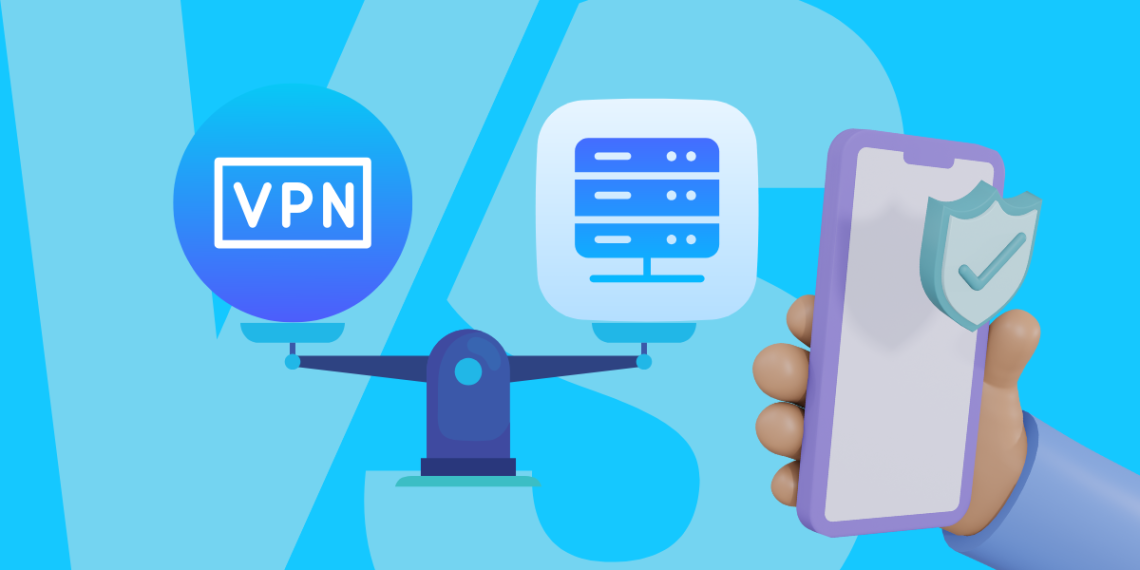Table of Contents
What Are ISP Proxies?
ISP proxies, or Internet Service Provider proxies, are a unique type of proxy service that combines the speed and stability of data center proxies with the authenticity of residential proxies. Unlike standard residential proxies, ISP proxies use IP addresses that are registered with Internet Service Providers but are hosted on high-performance servers. This combination makes them highly reliable and efficient for a variety of applications, from web scraping to accessing geo-restricted content.
ISP proxies are ideal for users who require fast and stable connections without compromising on anonymity. Their primary advantage is their ability to mimic residential IPs while avoiding the latency issues commonly associated with traditional residential proxies.
Benefits of Different Proxy Types
Understanding the benefits of various proxy types is essential for selecting the best solution for your needs. Here are some common types of proxies and their advantages:
Residential Proxies
- High Anonymity: Residential proxies use IP addresses assigned to real devices, making them highly authentic and less likely to be flagged by websites.
- Geo-Targeting: They allow users to access content specific to different regions, ideal for localized marketing campaigns.
- Stability: Residential proxies provide reliable connections for long-term tasks.
Data Center Proxies
- Speed and Cost-Effectiveness: These proxies are known for their high-speed performance and affordability, making them suitable for tasks that require rapid execution.
- Scalability: They are ideal for large-scale web scraping and automated tasks due to their availability in bulk.
- Less Restricted: Unlike residential proxies, data center proxies are not tied to an ISP, which can be advantageous in certain use cases.
ISP Proxies
- Blends Speed and Authenticity: ISP proxies offer a balance between the speed of data center proxies and the authenticity of residential proxies.
- Resilience Against Blocks: They are harder to detect and block, making them effective for sensitive tasks like managing multiple accounts or accessing restricted websites.
- High Uptime: With server-hosted infrastructure, ISP proxies ensure stable and uninterrupted connections.
Challenges in Choosing the Right Solution
While proxies offer numerous benefits, selecting the right type can be challenging due to several factors:
Pricing Variability
The cost of proxies varies widely depending on their type and provider. Residential proxies are generally more expensive due to their authenticity, while data center proxies are more budget-friendly. ISP proxies fall in the middle, offering a balance of cost and functionality.
Compatibility Issues
Not all proxies work seamlessly with every application or website. For instance, some websites are highly sensitive to IP addresses and may block certain proxy types. Testing compatibility before committing to a provider is crucial.
Limited Availability
High-quality ISP proxies can be harder to source compared to data center or residential proxies. This limited availability can make them less accessible for users with tight deadlines.
Security Concerns
Choosing an unreliable provider can expose you to risks such as data leaks or compromised anonymity. Always opt for trusted providers with strong security measures in place.
Comparing Popular Providers
When evaluating the best ISP proxy providers, consider factors like pricing, performance, and customer support. Below is a comparative analysis of popular options:
Provider A: Performance-Focused
- Strengths: Exceptional speed, high uptime, and robust geo-targeting capabilities.
- Drawbacks: Premium pricing and limited availability in certain regions.
Provider B: Budget-Friendly
- Strengths: Affordable pricing plans and bulk discounts.
- Drawbacks: Slightly lower performance and limited advanced features.
Provider C: Versatile Solutions
- Strengths: Offers a variety of proxy types, including ISP proxies, with strong security protocols.
- Drawbacks: Customer support response times can be slow during peak hours.
Practical Use Cases
ISP proxies and other proxy types have diverse applications across industries. Here are some real-world examples:
E-Commerce and Market Research
Businesses use proxies to monitor competitor pricing, track trends, and gather data for market research. ISP proxies are particularly useful in avoiding detection while conducting large-scale scraping operations.
Social Media Management
Managing multiple accounts on platforms like Instagram or Facebook often requires proxies to prevent bans. ISP proxies offer the perfect balance of speed and reliability for these tasks.
Streaming and Geo-Restricted Content
ISP proxies are excellent for accessing region-specific streaming content. Their high speed and authenticity ensure seamless viewing experiences without buffering or restrictions.
Ad Verification
Advertisers use proxies to ensure that their ads are displayed correctly across different locations. ISP proxies enable accurate geo-targeting and prevent ad fraud.
Finding the Right Proxy Solution
Choosing the right proxy type depends on your specific needs and use cases. ISP proxies offer a versatile solution that combines speed, reliability, and authenticity, making them ideal for tasks requiring high performance and anonymity. By understanding the benefits and challenges of different proxy types, you can make informed decisions that align with your objectives.
When selecting a provider, prioritize factors like performance, pricing, and customer support. A well-chosen proxy service can significantly enhance your online operations, from web scraping to social media management and beyond.

